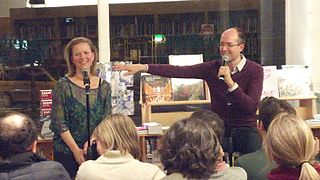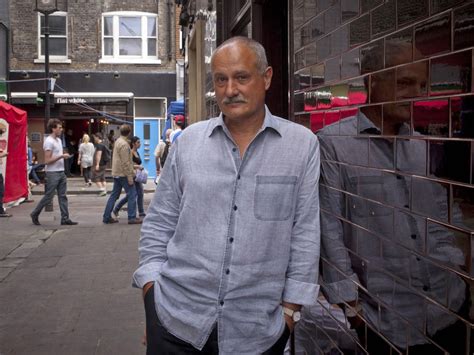A Quote by Jennifer Egan
We're [writers] all afraid of writing badly, and there are psychological reasons, like the bad interior of ourselves is somehow being revealed, but we all fear that, and you can't write well if you're not willing to write badly. That's why you have to make writing a habit, so it feels normal and not strange.
Related Quotes
The most common thing I find is very brilliant, acute, young people who want to become writers but they are not writing. You know, they really badly want to write a book but they are not writing it. The only advice I can give them is to just write it, get to the end of it. And, you know, if it's not good enough, write another one.
I could never write about the sort of people John Cheever or John Updike or even Margaret Atwood write about. I don't mean I couldn't write as well as they do, which of course I couldn't; they're great writers, and I'm no writer at all. But I couldn't even write badly about normal, neurotic people. I don't know that world from the inside. That's just not my orientation.
The secret to writing is just to write. Write every day. Never stop writing. Write on every surface you see; write on people on the street. When the cops come to arrest you, write on the cops. Write on the police car. Write on the judge. I'm in jail forever now, and the prison cell walls are completely covered with my writing, and I keep writing on the writing I wrote. That's my method.
I have a hard time writing. Most writers have a hard time writing. I have a harder time than most because I'm lazier than most. [...] The other problem I have is fear of writing. The act of writing puts you in confrontation with yourself, which is why I think writers assiduously avoid writing. [...] Not writing is more of a psychological problem than a writing problem. All the time I'm not writing I feel like a criminal. [...] It's horrible to feel felonious every second of the day. Especially when it goes on for years. It's much more relaxing actually to work.
I haven’t had trouble with writer’s block. I think it’s because my process involves writing very badly. My first drafts are filled with lurching, clichéd writing, outright flailing around. Writing that doesn’t have a good voice or any voice. But then there will be good moments. It seems writer’s block is often a dislike of writing badly and waiting for writing better to happen.
People who write for reward by way of recognition or monetary gain don't know what they're doing. They're in the category of those who write; they are not writers. Writing is simply something you must do. It's rather like virtue in that it is its own reward. Writing is selfish and contradictory in its terms. First of all, you're writing for an audience of one, you must please the one person you're writing for. Yourself.
Write all the time. I believe in writing every day, at least a thousand words a day. We have a strange idea about writing: that it can be done, and done well, without a great deal of effort. Dancers practice every day, musicians practice every day, even when they are at the peak of their careers – especially then. Somehow, we don’t take writing as seriously. But writing – writing wonderfully – takes just as much dedication.




































